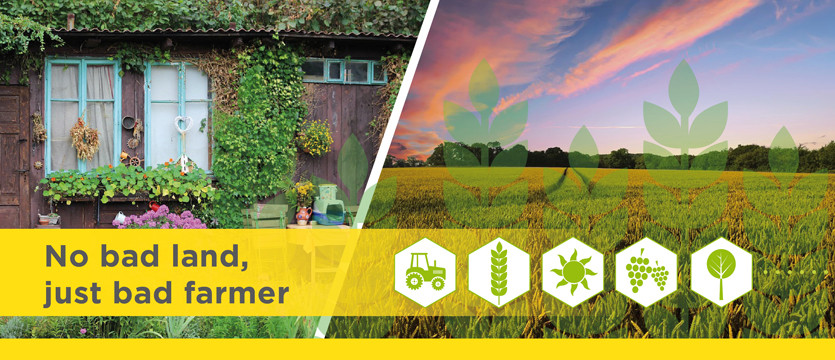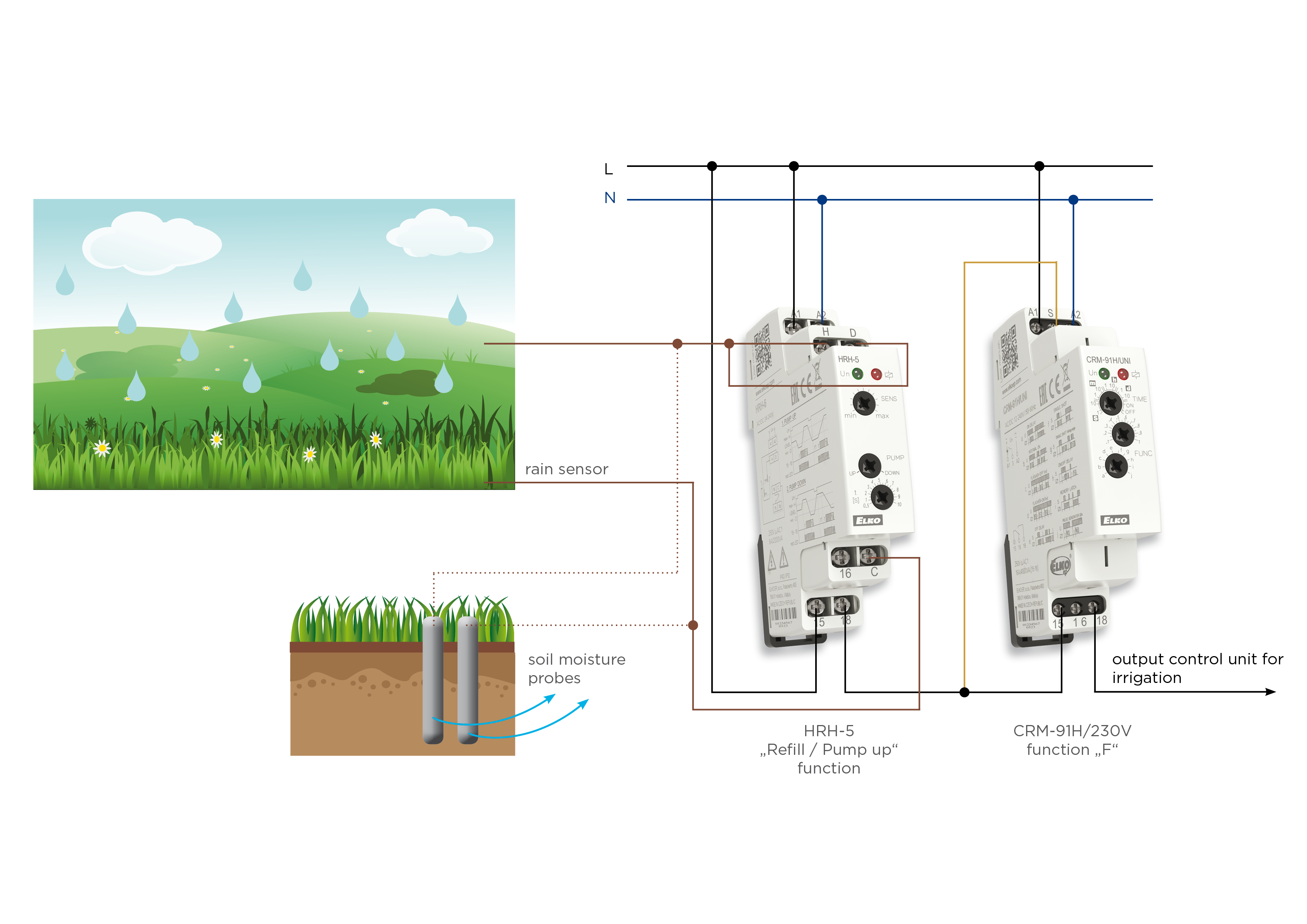No bad land, just bad farmer?

“There is no bad land, just a bad farmer,” is the old saying, and there must be something in it.
Anyone who is lucky enough to live in house with a garden or has some arable land and has cultivated it, knows full well that gardening is not just about sowing, planting and harvesting, but it is not such a strenuous an activity even digging is more useful as a form of good healthy relaxation. The home grown non-chemically treated crop has no match.
Irrigation plays a key role in growing crops. In the commercial market, the offer is very diverse, even for the home assembly of complete irrigation systems, from pipes and valves to controls. We who deal with electricity obviously put the emphasis on control, that’s what we do, and certainly many of us think about designing our own control as well. To do this, we will now try to line up some ideas.
Watering when there is no rain
The first figure shows an alternative application with the popular and very good value for money HRH-5 type liquid level controller. The HRH-5 is able to monitor and level conductive fluids with the help of some external passive probes – typically made from stainless steel. As this has been the case in the past, we won't go into it now. The point is that it can be used either for control between two levels (filling / emptying) or for monitoring one level. In the figure, it operates in the latter mode, to which terminals “H” and “D” must be connected and one probe must be connected to it, while the other probe is connected to terminal “C”, which provides the measuring signal. For proper operation, the controller must be set to the "fill" function.
The interesting thing about the circuit is that we do not monitor the level of the tank, but depending on the sensor used, whether it has rained or the ground is wet enough. To monitor rain, a surface similar to the one shown in the figure is required, where the H + D and C probe parts alternate (such a meander panel can be made at home, but is also available, mainly in electronics stores). If the insulating surfaces between the probe conductors are dry, the controller will turn on the relay to allow irrigation. Conversely, if the probe guides are connected by rainwater, the control relay will release and disable irrigation. The potentiometer on the front of the HRH-5 can be used to set the sensitivity or a delay.
To detect soil moisture, of course, a probe assembly that can be inserted into the ground is required, which can be two stainless steel rods with spacers or probes offered for liquid level switches.
The time relay set for the release delay function is built into the circuit and performs several tasks. Once you determine how long you want to give the enable signal for the next stage - e.g. irrigation, it could also spray water on the detected area, so it could disable the system too soon. Second, the HRH-5 extends its own delay, making the system less disturbance sensitive.
The soil moisture detection is drawn with a dashed line, indicating that either one or the other can be used, they can be connected in parallel, which will treat the two states - soil moisture and rain - as a logical OR as a relationship - which first detects the switching threshold, leadership value, it will start the process.
Calendar
- Mo
- Tu
- We
- Th
- Fr
- Sa
- Su

 E-shop
E-shop
 English
English Česky
Česky
 Slovensky
Slovensky
 Deutsch
Deutsch
 Polski
Polski
 Български
Български
 Magyar
Magyar
 Românește
Românește
 Tiếng việt
Tiếng việt
 Ukraine
Ukraine
 Español
Español
 English GB
English GB
 Српски
Српски
 Qatar
Qatar
